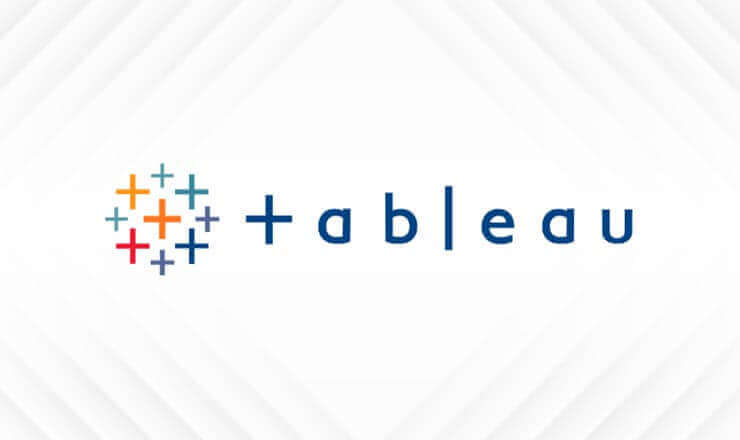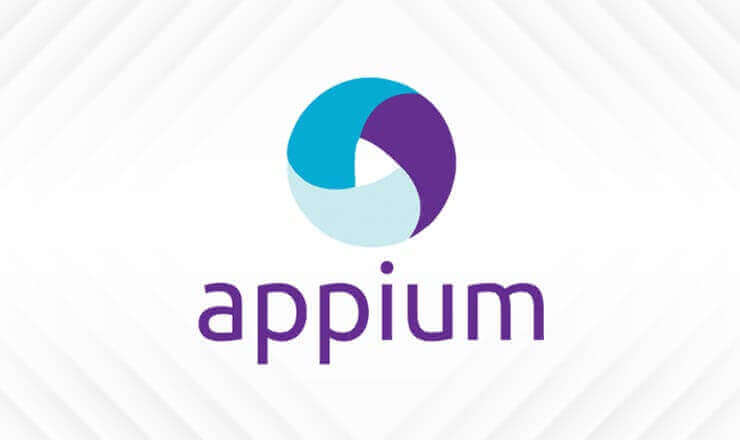Frontend developers design a website's user-facing aspects, transforming designs into practical web pages using languages like HTML, CSS, and JavaScript. TechPro's course gives you thorough front-end development skills, preparing you for different roles.
Summary
A front-end developer is an expert at developing user interfaces (UI) and user experiences (UX) for websites and web applications. They work on the client side of web development, focusing on a website's visible, user-facing parts.
Front-end developers are responsible for transforming design drafts or schemes into active and practical web pages. They create a website's system, style, and behaviour using a combination of programming languages such as HTML, CSS, and JavaScript.
Front-end development has developed significantly with new technologies, structures, and libraries. Today's front-end developers use systems such as React, Angular or Vue.js. These systems provide additional tools and features that help with the development of complex user interfaces and interactive web applications. Front-end developers are essential for developing eye-catching, user-friendly, websites that can respond and which offer excellent user experiences.
TechPro Education's course will introduce you to all the front-end processes of a website and application. By the end of the period, you will gain the skills necessary to work in various positions:
Job Title Targets
- - Front-End Developer
- - Web Developer
- - UI Developer
- - Web Designer-UI/UX Designer
- - Freelancer Worker
- - React Developer
- - JavaScript Developer
Course Content
ITF
IT Fundamentals refer to basic knowledge of the key concepts in information technology (IT) and their understanding. It provides a base for individuals in different areas of information technology and offers the basis for further training and specialist preparation.
HTML (Text-Based Markup)
HTML stands for "text-based markup”. The HTML standard creates the web page's structure and content. It provides a set of tags which define the various elements of a website, for example, the title, the paragraph, the link, the image, the table, and the form.
CSS
The Cascading Style Sheets (CSS) language describes how a web page should look. It lets developers change the letter style, colour, text organization, position, and the way that HTML elements respond, among other things.
Bootstrap
Bootstrap is an open-source CSS system that provides pre-built elements and style to make the development of the front end simpler. It offers grids that respond, parts of the user screen (e.g., buttons, forms, bars for navigating) and Javascript plugins to create mobile-friendly and attractive sites with visual appeal.
JavaScript
Javascript is an open-source programming language which adds communication and dynamic behaviour to websites. It allows front-end developers to build interactive features, interact with users, control a DOM model, request APIs, and create complex web apps.
SASS
Syntactically Awesome Style Sheets): SASS is a CSS preprocessor that extends the abilities of CSS. It introduces features like variable elements, creating nests, mixins, and functions, which improve the efficiency and organization of writing CSS code. SASS files are organized into regular CSS files to help make them compatible with different broswers.
Webpack
Webpack combines systems for web applications. It takes several systems, such as Javascript, CSS and other resources, and packages them into an improved file that can serve the user. Webpack supports different features, such as code split, hot system replacement, and the loader transfer of code.
React & NextJs
React is a JavaScript library used for the development of user connections. It enables developers to build UI components that can be used again and to efficiently manage the state of the application. React used a component-based architecture and a virtual DOM (Document Object Model) to efficiently display and update UI elements.
Redux Toolkit
Redux Toolkit is a well-reviewed official package for working with Redux, a predictable state management library for JavaScript applications. Redux Toolkit makes the setup and use of Redux simpler by providing convenient abstractions, such as createSlice, createAsyncThunk, and configureStore, to handle state management more efficiently.
React Testing
React testing refers mainly to writing tests for a React element to make sure it works well, is reliable and that maintenance is regularly updated. React can be tested using different libraries and systems, such as Jest and the React testing library. These tools allow for testing of the React element's unit, the way it is included, and the connection with the user.
Deployment
Deployment refers to making a website or web application available to users on the internet. It involves programming servers, uploading code and elements like sound and pictures, setting up databases, and ensuring the proper functioning of the application in a production environment.
Docker
Docker is an open-source platform that allows developers to package applications and dependent elements into containers. Containers offer a well organized and separate platform for running applications, making it simpler to deploy and scale applications across various systems and locations.
AWS (Amazon Web Services)
AWS is Amazon's cloud computer platform with tools for web app development, internal structure management, and more. Services include storage, computer actions, databases, using computers with no servers, and content delivery.
Schedule
Turkish Course Night Time Schedule
|
Day
|
EST
|
CET
|
TSI
|
|
Monday
|
01:30 pm - 04:20 pm
|
19:30 - 22:20
|
20:30 - 23:20
|
|
Tuesday
|
01:30 pm - 04:20 pm
|
19:30 - 22:20
|
20:30 - 23:20
|
|
Wednesday
|
01:30 pm - 04:20 pm
|
19:30 - 22:20
|
20:30 - 23:20
|
|
Thursday
|
01:30 pm - 04:20 pm
|
19:30 - 22:20
|
20:30 - 23:20
|
|
Friday
|
11:30 am - 04:20 pm
|
17:30 - 22:20
|
18:30 - 23:20
|
|
Saturday
|
11:30 am - 04:20 pm
|
17:30 - 22:20
|
18:30 - 23:20
|
|
Sunday
|
-
|
-
|
-
|
- EST : Eastern Standard Time
- CET : Central European Time
- TSI : Turkish Time
English Course Day Time Schedule
|
Day
|
EST
|
CET
|
TSI
|
|
Monday
|
-
|
-
|
-
|
|
Tuesday
|
10:00 am.- 12:50 pm
|
16:00 - 18:20
|
17:00 - 19:50
|
|
Wednesday
|
10:00 am.- 12:50 pm
|
16:00 - 18:20
|
17:00 - 19:50
|
|
Thursday
|
10:00 am.- 12:50 pm
|
16:00 - 18:20
|
17:00 - 19:50
|
|
Friday
|
10:00 am.- 12:50 pm
|
16:00 - 18:20
|
17:00 - 19:50
|
|
Saturday
|
10:00 am - 02:20 pm
|
14:00 - 20:20
|
17:00 - 21:20
|
|
Sunday
|
10:00 am - 02:20 pm
|
14:00 - 20:20
|
17:00 - 21:20
|
- EST : Eastern Standard Time
- CET : Central European Time
- TSI : Turkish Time
English Course Night Time Schedule
|
Day
|
EST
|
CET
|
TSI
|
|
Monday
|
07:00 pm - 09:50 pm
|
01:00 - 03:50
|
02:00 - 04:50
|
|
Tuesday
|
07:00 pm - 09:50 pm
|
01:00 - 03:50
|
02:00 - 04:50
|
|
Wednesday
|
07:00 pm - 09:50 pm
|
01:00 - 03:50
|
02:00 - 04:50
|
|
Thursday
|
07:00 pm - 09:50 pm
|
01:00 - 03:50
|
02:00 - 04:50
|
|
Friday
|
-
|
-
|
-
|
|
Saturday
|
10:00 am - 02:20 pm
|
16:00 - 19:20
|
17:00 - 21:20
|
|
Sunday
|
10:00 am - 02:20 pm
|
16:00 - 19:20
|
17:00 - 21:20
|
- EST : Eastern Standard Time
- CET : Central European Time
- TSI : Turkish Time
Note: Please note that schedules may change due to daylight saving time in summer and winter.
FAQ
What is the difference between a front-end developer and a backend developer?
There are two types of developer: Front-End and Back-End. Front-end designers create visual elements using HTML and CSS, while back-end developers concentrate on functions and creating systems using Python and Java.
What are the most popular frontend development systems?
React, Vue.js, and Angular are popular front-end systems. React has a large community and is fast and efficient. Vue.js is easy to learn and flexible. Angular is established and powerful but challenging to learn.
What are the most important skills for a Frontend developer?
To create and improve websites, and web apps, front-end developers need strong skills in JavaScript, HTML, and CSS, as well as additional essential abilities:
- - UX design
- - UI design
- - Creating Prototypes
- - Testing
- - Version control
- - Communication
What are the challenges of front-end development?
The challenges of front-end development include:
- - Keeping up with the latest technologies
- - Dealing with complex user connections
- - Working with a team of developers
- - Meeting deadlines
- - Dealing with unexpected problems
What is the future of front-end development?
Front-end development is a promising industry with high incomes and rising demand. Because clients see the website or application user interface first, front-end developers are in great demand. As technology develops, the need for developers will increase.
How much does a Front-end developer usually earn?
The usual Salary of Front-end Developer is $112k a year in the USA.

























